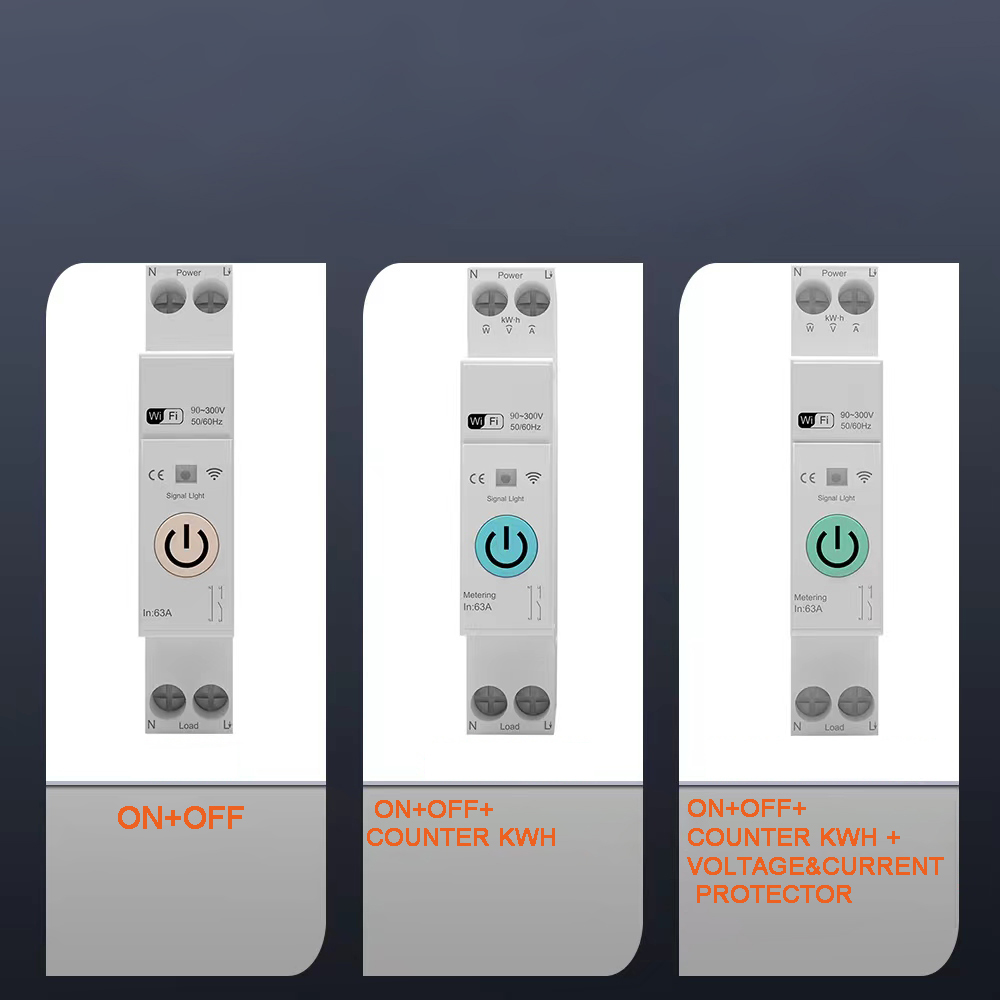Views: 0 Author: Site Editor Publish Time: 2025-05-14 Origin: Site








The world of smart homes is rapidly expanding, offering unprecedented convenience and control over our living spaces. From automated lighting to remotely managed appliances, smart technology is transforming how we interact with our homes. A key player in making this technology accessible and affordable is the eWeLink switch.
It’s important to clarify that “eWeLink” itself is primarily a smart home platform and app ecosystem, not necessarily a specific hardware brand. An eWeLink switch refers to any smart switch or smart plug designed to work with the eWeLink app and cloud service.
The Platform: eWeLink provides the software infrastructure (the app and cloud servers) that allows users to control compatible smart devices.
The Hardware: Many manufacturers produce hardware compatible with the eWeLink platform. Sonoff is perhaps the most well-known brand closely associated with eWeLink, offering a wide range of WiFi switches, smart plugs, and other smart devices. However, other brands also manufacture eWeLink-compatible products.
Core Functionality: At its heart, an eWeLink switch connects to your home’s WiFi network. This allows you to remotely turn connected appliances or lights on or off using the eWeLink app on your smartphone (iOS or Android) or through voice commands via compatible assistants.

Integrating eWeLink compatible switches into your home offers numerous advantages:
Remote Control: The primary benefit. Turn lights or appliances on/off from anywhere in the world using the eWeLink app, as long as you have an internet connection. Forget worrying if you left the iron on!
Scheduling & Timers: Automate your home effortlessly. Set schedules for lights to turn on at dusk and off at dawn, start your coffee maker before you wake up, or set countdown timers for devices to turn off automatically.
Voice Control Integration: Enjoy hands-free operation. eWeLink seamlessly integrates with popular voice assistants like Amazon Alexa and Google Assistant. Simply say, “Alexa, turn on the living room lamp,” or “Hey Google, turn off the fan.”
Energy Savings: By scheduling devices to turn off when not needed and easily monitoring their status remotely, you can prevent energy waste from devices left running unnecessarily. Some models even offer energy monitoring features within the app.
Enhanced Security: Simulate presence when you’re away from home by scheduling lights to turn on and off randomly or at set intervals, potentially deterring intruders.
Affordability: eWeLink compatible devices, particularly those from brands like Sonoff, are often among the most cost-effective ways to start building a smart home.
Scene Creation: Group multiple eWeLink devices together in the app to create custom scenes. For instance, a “Movie Night” scene could dim the main lights, turn on accent lighting, and switch off other distractions with a single tap or voice command.
The operation is straightforward but relies on a few key components:
WiFi Connection: The eWeLink switch connects directly to your home’s 2.4GHz WiFi network (most smart home devices do not support 5GHz networks).
Cloud Communication: Once connected to WiFi, the switch registers and communicates with the secure eWeLink cloud servers over the internet.
App Control: When you issue a command (like turning a switch on) via the eWeLink app on your smartphone, the command travels via the internet to the eWeLink cloud.
Execution: The cloud server relays the command back via the internet to the specific switch on your home network, which then executes the action (turning the connected device on or off).
LAN Control (Optional): Some eWeLink devices support LAN control mode. If enabled, and your phone is on the same local network as the switch, commands can sometimes be sent directly over the LAN, resulting in faster response times and functionality even if the external internet connection is temporarily down (though initial setup and some features still require the cloud).
Connecting your Tongou smart switch to the eWeLink app allows you to control it remotely via your smartphone. Follow these steps precisely to pair your device:
Wiring: Confirm the Tongou eWeLink switch is correctly and safely wired according to the manufacturer’s installation instructions. (Safety Advisory: If you are uncertain about electrical wiring procedures, please consult a qualified electrician.)
App Installation & Login: Download the eWeLink app from the Google Play Store or Apple App Store. Launch the app and log in to your eWeLink account or register for a new one if you haven’t already.
Smartphone Connectivity: Enable both Wi-Fi (ensure your phone is connected to your 2.4GHz Wi-Fi network, as required by many smart devices for setup) and Bluetooth on your smartphone. Keep your phone near the switch during pairing.
Locate the red button situated on the front panel of the Tongou eWeLink switch.
Press and firmly hold this red button for approximately 5 to 10 seconds.
Release the button once the indicator light on the switch begins to blink rapidly or follow a specific pairing pattern. This indicates the switch has entered pairing mode and is discoverable.
Open the eWeLink app on your smartphone.
Navigate to the app’s home screen and tap the ‘+’ (Add) icon (typically found at the bottom center or top right).
Select the “Add Device” option (or the specific pairing method recommended by the app, such as “Quick Pairing” or “Bluetooth Pairing”).
The app will likely prompt you to select your 2.4GHz Wi-Fi network and enter the corresponding password. Ensure this information is entered correctly.
After confirming your Wi-Fi details, the app will initiate the search process to detect nearby devices in pairing mode. Keep your phone close to the blinking switch.
Wait for the app to discover and identify the Tongou switch. It should appear on the screen once found.
Follow any remaining on-screen instructions to complete the pairing. This may involve confirming the device.
Once pairing is successful, you will usually be prompted to assign a name to your switch (e.g., “Office Light,” “Main Power Switch”).